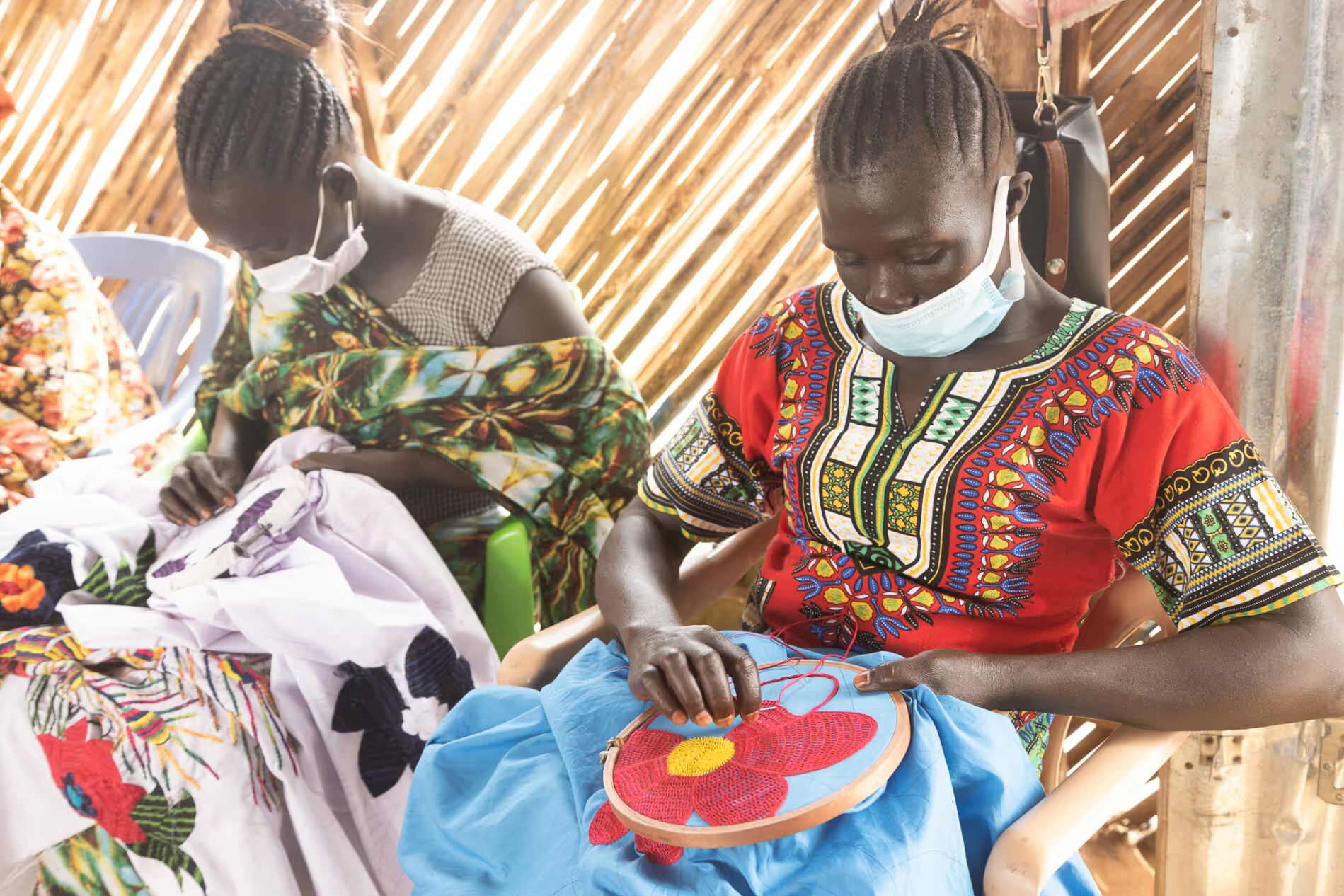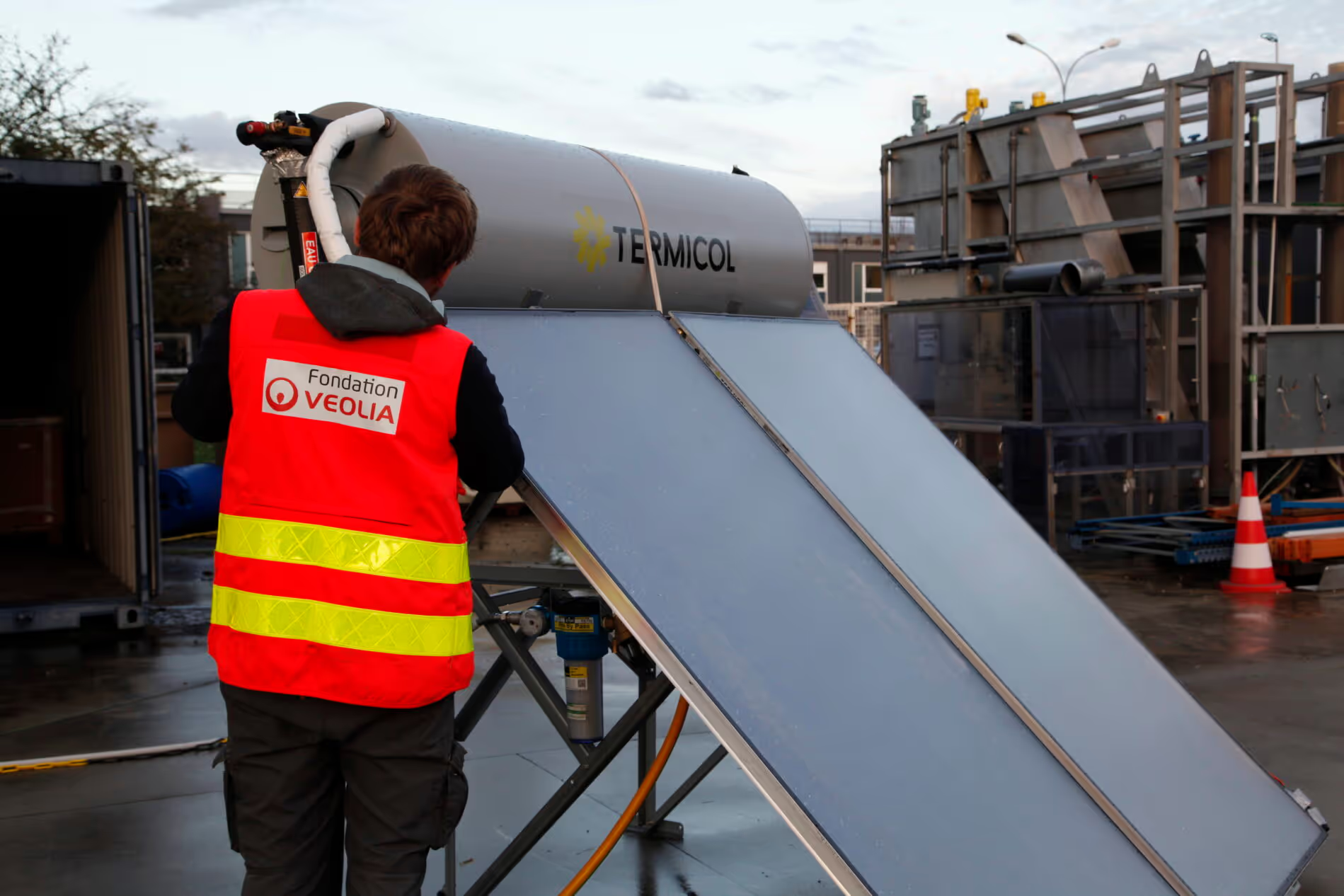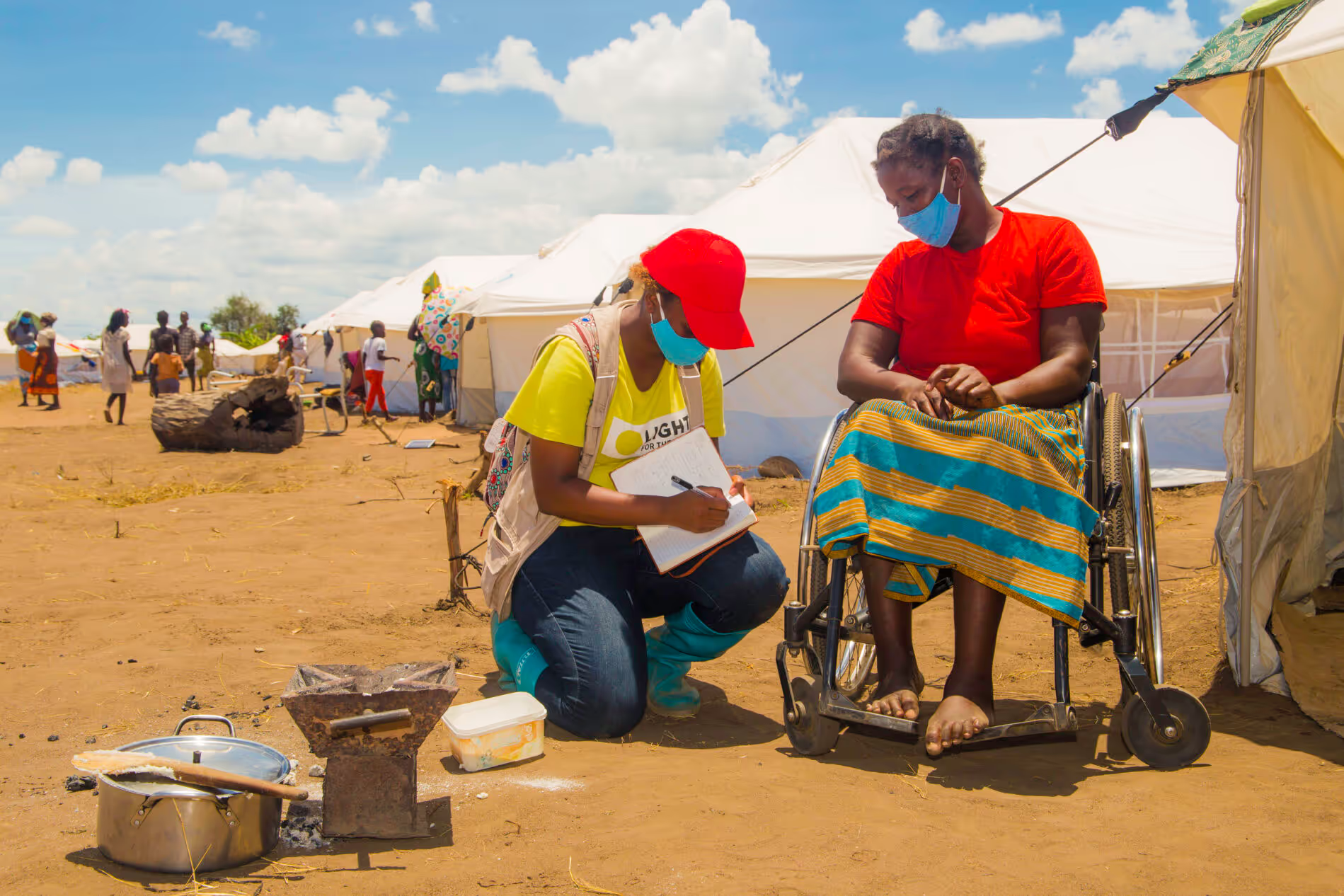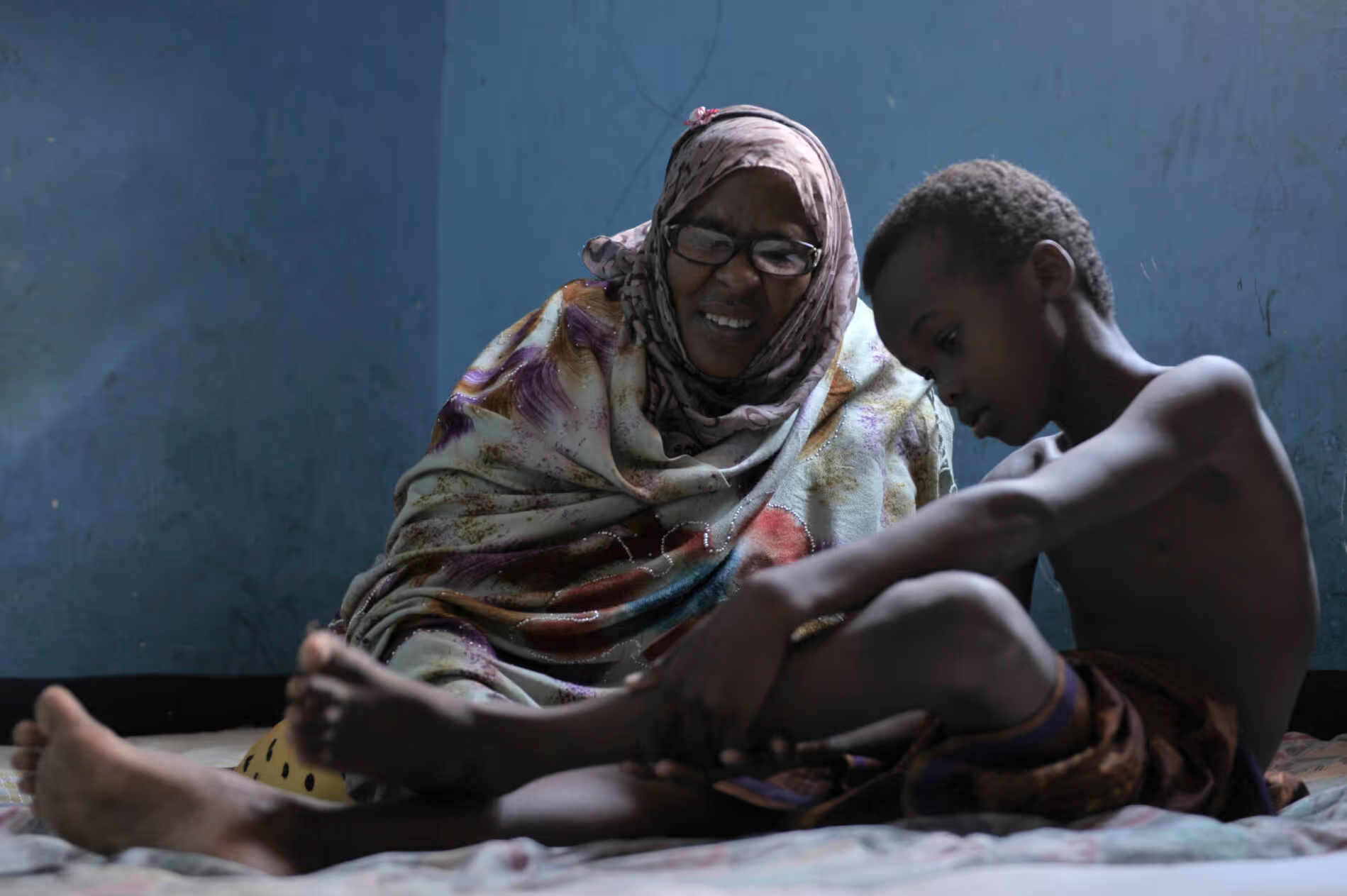Understanding Gender-based Violence Service Barriers to Disability and Older Age Inclusion in Iraq
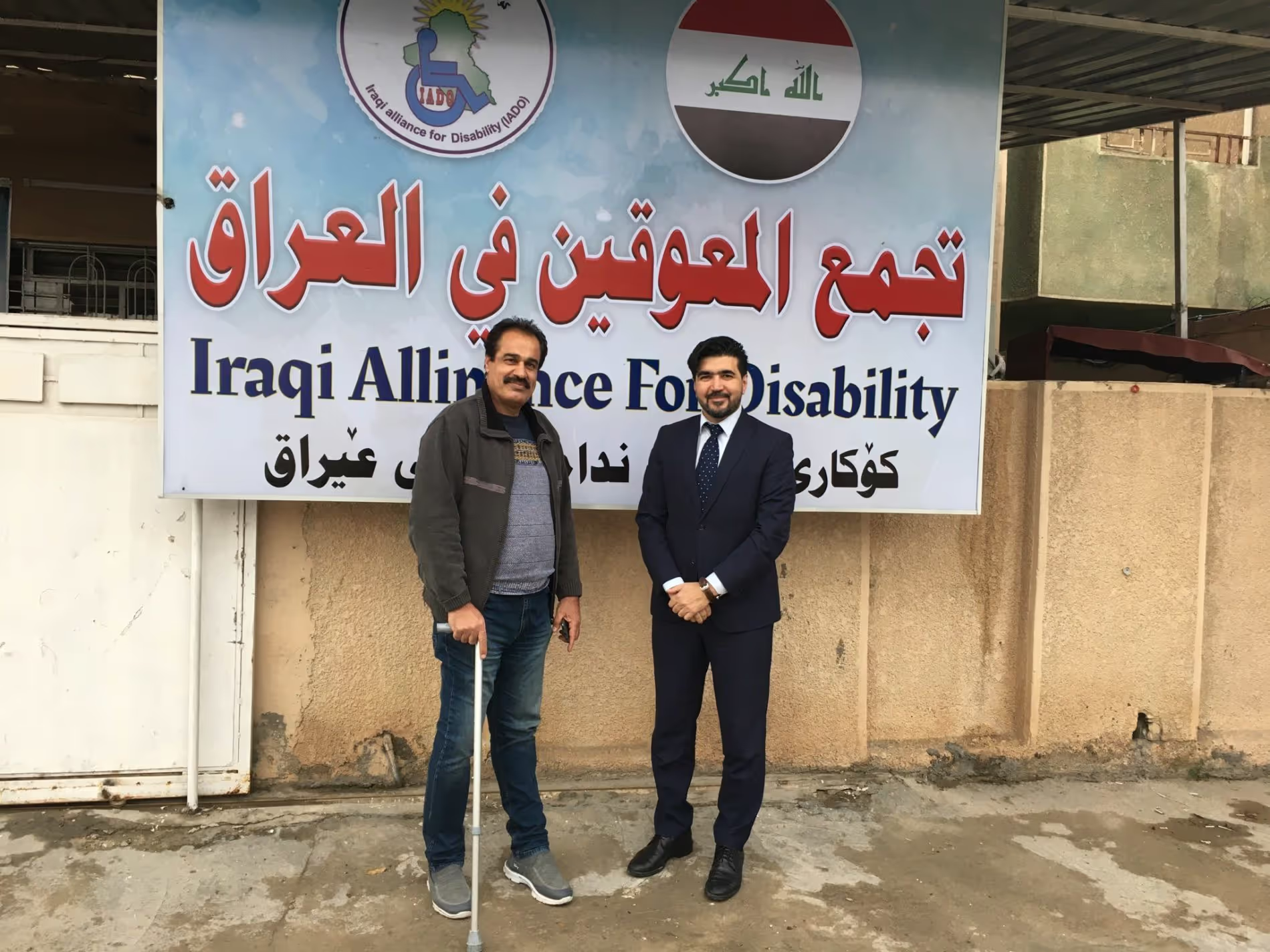
Project overview
Heartland Alliance International (HAI) and Iraqi Alliance of Disability Organisations (IADO) are conducting a three-site study in Iraq assessing perspectives of people with disabilities, older people, and other stakeholders to better understand environmental and attitudinal barriers to inclusion in gender-based violence (GBV) care and identify strategies to increase access.
Project solution
This project offers [specific solution or intervention] to tackle [challenge]. By implementing [strategies, tools, or innovations], the project aims to achieve [desired outcomes]. The approach is designed to [specific actions or methods] to bring about meaningful change in [community, region, or issue area].
Expected outcomes
This project aims to achieve [specific outcomes], such as [measurable results, improvements, or changes]. The expected impact includes [benefits to the target community, advancements in research or innovation, or long-term effects]. By the end of the project, we anticipate [specific changes or milestones] that will contribute to [broader goals or objectives].
What humanitarian need is being addressed?
People with disabilities and older people are vulnerable to GBV, especially in humanitarian settings. Yet they are underrepresented in GBV services.
Barriers to care may be environmental, organisational, attitudinal, and/or related to mental health. They can be influenced by culture, conflict-exposure, and displacement. Little research has examined barriers to care among people with disabilities and older people in complex conflict/post-conflict contexts like Iraq.
This research aims to fill this gap through an in-depth quantitative and qualitative study, developed and implemented with participation of affected community members, and encompassing perspectives from varied contexts and stakeholders.
What is the innovative solution and how will it improve existing humanitarian practice?
This solution is in the problem recognition stage of the innovation cycle, where the team aims to better understand and define the issues that need addressing.
Heartland Alliance International and IADO will work with local organisations for people with disabilities (OPDs) to conduct a mixed-method study across three diverse conflict-affected sites in Iraq: urban areas in Baghdad and Mosul, and IDP camps in Sulaymaniyah.
Innovative, accessible, and safe data collection methodologies will be developed collaboratively with people with disabilities and older people through a participatory methods development workshop.
Research will utilise tools developed in this workshop to guide interviews and focus group discussions (FGDs). FGDs will be conducted with people with disabilities and older people, with family members and community leaders and combined with online surveys for GBV service providers.
Data collection will focus on exploring both explicit and implicit barriers to care in environmental (e.g. inaccessible transportation and buildings), organisational (e.g. lack of knowledge among GBV service providers), attitudinal (e.g. social norms, stigma), and mental health (e.g. reactions to stress and trauma) domains with attention to relevant cultural factors.
Expected Outcomes
Research is expected to illuminate barriers to care and inform strategies for increasing access. Results will be presented at all levels:
- Locally in local dissemination workshops
- Nationally through the SGBV Task Force and National Disability Task Force in Iraq
- Globally through an academic article and reporting to the IASC.
Results will also be published in accessible formats (including a Plain Language Summary). The research is intended inform concrete initiatives to increase access to GBV care among people with disabilities and older people in Iraq as well as in other humanitarian contexts.Feature Photo: Hashim Al-Azzawi, IADO Coordinator and Salah Barzngy, HAI Country Director. Credit: HAI.
Project delivery & updates
Stay up to date with the latest developments from this project. Here, you will find details on what has been delivered, resources created, and regular updates as the project progresses. Access key documents, reports, and other materials to see how the project is making an impact.



